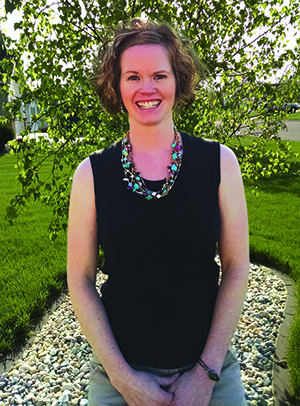A Caregiver's Perspective
Cancer can’t take away your hopes & dreams
 Children’s author, Kelly Strenge, is all too familiar with the struggles that patients with cancer and their families face. As her husband’s caregiver, she’s worked to give her experiences and pain a purpose by helping others. Her book, The Truth About Cancer, is written to help children understand the disease, and she’s giving back even more by donating half of her proceeds to various cancer research organizations.
Children’s author, Kelly Strenge, is all too familiar with the struggles that patients with cancer and their families face. As her husband’s caregiver, she’s worked to give her experiences and pain a purpose by helping others. Her book, The Truth About Cancer, is written to help children understand the disease, and she’s giving back even more by donating half of her proceeds to various cancer research organizations.
My husband has battled Stage IV Hodgkin lymphoma for eight years. He was diagnosed at the young age of 27 and has been through many remissions and recurrences. As his wife, I never even thought twice about taking on the role of caregiver. It was a smooth transition into a role focused on his health, as I relied mostly on him telling me what he needed.
After he was diagnosed, we asked a lot of questions and referenced materials from the doctor’s office and the Leukemia & Lymphoma Society. We were careful not to get overwhelmed by all of the information online though. Every person and every cancer is different so not every resource applied to us.
As his journey moved forward, I was with him for every appointment and we discussed every treatment decision together. He underwent chemotherapy, radiation, multiple biopsies and stem cell transplants and several clinical trial drugs. Luckily both of our employers were very understanding and accommodated our needs. We did find ourselves relying more heavily on family to help with childcare and meal planning. The support was tremendous and we all grew closer as a family.
It was hard to watch my husband battle the side effects of his multiple treatments. The nausea and vomiting were especially awful and the hair loss was a constant, visible reminder of what we were dealing with. We felt the whole world could see it. Amongst all of the doctor’s appointments, the treatment schedule and managing side effects, watching others go out and enjoy life was difficult to swallow. I coped by writing.
As I sat in various physicians’ offices, I put my thoughts together into a book for children. Our two kids, ages 9 and 4, have watched their father go through several battles with this disease, in and out of remission and having to start a different treatment path every time the cancer returned. Because of how hard it was to explain what their Dad was going through, I wanted this book to talk about cancer in an honest, light-hearted and inspiring way so that children would be less afraid of it. I believe the truth about cancer is that it can’t take away your hopes and dreams, no matter how difficult the fight seems. And instilling that sense of hope was important to me for the well-being of my family.
There is no denying it’s been difficult on all of us, including myself. In the beginning, I focused so whole-heartedly on my husband that I never paid attention to my own needs. As a result, three years after he was diagnosed, I started to have panic attacks and anxiety. My doctor diagnosed them as Post Traumatic Stress Disorder (PTSD) from the cumulative stress I was enduring. Finally knowing something needed to change, I began taking walks and exercising regularly. I started progressive muscle relaxation techniques and incorporated calming music. I realized that I couldn’t take care of anyone else if I didn’t take care of myself first. I’m proud to say now that it’s been two years since my last panic attack.
This journey has taught me that I am a lot stronger than I gave myself credit for. I’ve learned to enjoy the simplest pleasures and to treat every day like a holiday. It was hard for me to accept that I can’t do everything by myself, but now I know that not only is it okay, it’s important to ask others for help. That is what your support system is for.
Some time ago his parents told us that we needed to take things one day at a time. From that advice came the awareness that each day is a new beginning that comes with renewed strength. Don’t be afraid to ask for help or to admit you are struggling; cancer is hard on everyone and all journeys are different. And know that it’s not always about saying the right thing, but that just by being present for your loved one can sometimes say more to them than any words.


